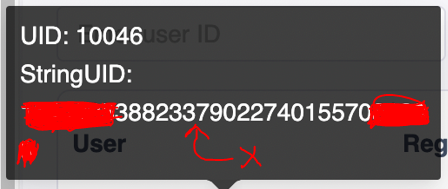Hi,
I am experiencing a problem caused by the StringUIDs generated by the Join AgoraRTC element. I have been informed by Agora support that these StringUIDs are the root cause of some compatibility issues we are experiencing with the Agora service, and I need it to generate integer UIDs instead.
The Join AgoraRTC element appears to take the uniqeIDs for each of the users and removes the ‘x’ to create a new string. Even though it looks like a number, it is a string, and Agora is treating it as a string.
I have tried using the Set states UID element before the Join AgoraRTC, bu the Join AgoraRTC overwrites the UID when it runs. I can’t use it after, because the UID can’t be changed once a user has joined.
I’m not sure if I am just missing the place where the UID is set. That would be great.
Any help would be greatly.





